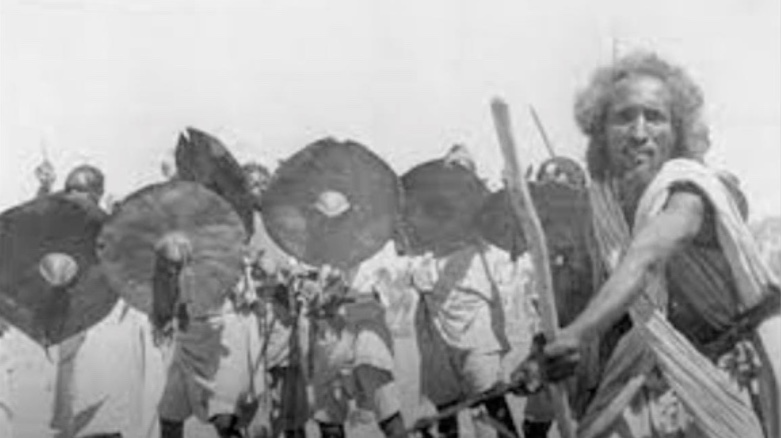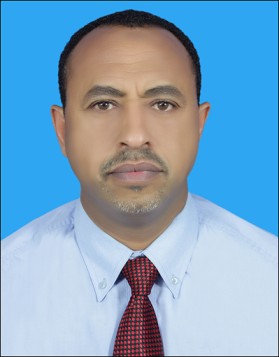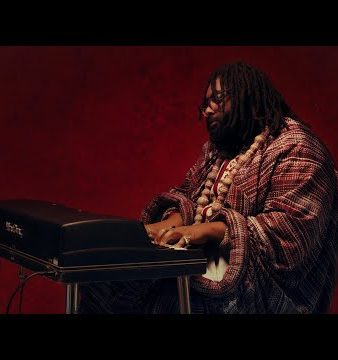Ethics of Disagreement in the Poetry of Arka Saber

As many have navigated through the poetry of the legend and the Beja Revolution Poet, Arka Saber, they may find that you read an interpreted document of the international laws about the ethics of war; whereas, most of the groups that revolted against its regimes fell into the most heinous crimes of humanity due to their unawareness of the international laws. The Beja revolution, in contrast, is one of the most distinguished ones that preserved the rights of citizens.
Over the ages, the Beja revolution was marked by a bright history of human rights for many reasons. The first is that the leaders of the Beja Congress were highly educated figures, who, according to their understanding of their case, helped at aiming their spear for the goals of which they revolted without prejudice to the public or private property that others benefit from.
Second, the Bejawees innate nature, like the nature of any Sudanese, does not disgrace prejudice to the rights of others, regardless of its cost. Therefore, the Beja revolution did not register any attack on women, children, or elderly people, even in the most difficult cases of its weaknesses. As it is impossible or rare for a Bejawee to attack a family, a child, or an elder, human crimes were characterised by zero value in the history of the Beja revolutions, and that was mentioned repeatedly in the poetry of Arka Saber.
Finally, the religious background of Bajawees especially in the region where the Beja revolution started, in the Red Sea mountains, Eastern of Sudan, around the Hamesh koreib district, which was characterised by the spread of the message of the preacher Sheikh Ali Beetai. The students, who were raised in that area, were nourished by the spirit of the religious morals that prevent the rights of others. Therefore, the revolution continued to protect itself from the rights of others or attacking citizens or their possessions throughout the difficult years. In addition, during the battles, the rights of the wounded and prisoners were preserved, as stipulated by the United Nations laws derived from their true Islamic religion.
In his familiar discursive style, the poet challenges his audience by requesting responses to his inquiries about how the ethics and behavior of international law that characterised the Beja revolution implemented and to confirm whether what he described was true. In his song, “Sak’ka Ware Rata”, which means “ask who tells you”, he counted the rights of others and how they carried out their duties.
“Sak’ka Ware Rata”
| Bejawiet lines | Arabic translation | English translation | Transcription |
| اولي متحكماب باكاي وهري وابكي كا كيلوميايا تري ديمه سلول هريونا تري ويرناي اييب ديني | الجمل الذي لم يتعلم القيادة لا يمكن السيطرة عليهاما انه لا ينقاد لك او يهرب منك ويكون مع غيرك | The camel who was not controlled when it was young,would not be possible later, (thus) either it wouldn’t follow you or flee with others. | /aʊ-ʊa-li met-hǝ-mᴂb bᴂ-kai weh-ri/,/w?ǝb-ki kǝ-keil-wǝm-jǝ/,/tǝri weir nai ǝ-jai dai-ni/ |
| تغارتين تدفع نرورانسينت تطلقاتون بتكاني مهين بابايتسكا وير راتا نفس الكلام اندهوك | غاراتنا والتي نفذت,وطلقتنا لم تذهب الى غير مكانها,أسال غيري سيفيدك بنفس الخبر | Our raids that carried out and our firing shots,were all to a specific goal, ask everyone else, will tell you the same. | /ti-qᴂ-rᴂ-tein tid-fǝ nǝ-rɔr insi:nt/,/ti-tǝl-qǝ-tu:n bit-kǝni mehi:n bǝ-bai/,/sǝkǝ weir rᴂ-tǝ nf-sel-klᴂm in-dehɔ:k/ |
| ايندا تلهباتيب جرهما قيقيانشمبهملت صفقة اوكلاش قليلييتسكا وير راتا نفس الكلام اندهوك | الجماعة الذي خرجو مجروحين من معركة هلبايتهي صفقه صغيرة تم تنفيذها بالكلاشنكوفأسال غيري سيفيدك بنفس الخبر | The group, who wounded in the “Hellbait”, was only with a Kalashnikov, ask everyone else, will tell you the same. | /ein-dǝ ‘Tehl-bai-ti:b‘ ʤer-hǝ-mǝ qi:q-jǝn/,/ʃǝbh-melt sǝfǝqǝ ɔ:k-lǝʃ qǝ-lei-lin-jeit/,/sǝkǝ weir rᴂ-tǝ nf-sel-klᴂm in-dehɔ:k/ |
| كدبوت اوموي ايين تلو تيدورايدب ايبسين ار اوراو مهيا اوقيقسكا وير راتا نفس الكلام اندهوك | كدبويت التي دارت رحاها اول الفجركان من العيب ترك رفقاءك في المعركهأسال غيري سيفيدك بنفس الخبر | At “Kadaboit” that took place early in the morning, they did not leave others on the battlefield ask everyone else, will tell you the same. | /kǝd-dǝ-boyt ɔ:-mɔi i-i:n-tǝ-laʊ ti:t-dɔ:r/,/ei-ḑǝb eib-si:n ǝr u:-raʊ meh-jai u:qi:q/, /sǝkǝ weir rᴂ-tǝ nf-sel-klᴂm in-dehɔ:k/ |
| ايتنظيمون نألتي مراي باكاي وحكمدارون اوكراي تماب باكايسكا وير راتا نفس الكلام اندهوك | مع انه التنظيم لم يجد شئياولم حكمدارنا لم يقبل الرشوة أسال أسال غيري سيفيدك بنفس الخبر | Although our organisation did not get any fund, our leader did not accept the bribe. Ask everyone else, they will tell you the same. | /itn-zi:-mu:n n?ǝ-lǝteib mǝ-rai bǝ-kai/,/weh-kǝm-dᴂ-ru:n ɔ:k-rai tǝ-mᴂb-bᴂ-kai/, /sǝkǝ weir rᴂ-tǝ nf-sel-klᴂm in-dehɔ:k/ |
| ادربايين وأمنيدا بنتاريبافارسايين بوييت مناقيبتيبسكا وير راتا نفس الكلام اندهوك | دروبنا لم نتركها لاسباب امنية,وفرساننا سيرتهم ملطخة بالدماء,أسال غيري سيفيدك بنفس الخبر | We continued in our paths despite security reasons, and our cavaliers stained with blood. Ask everyone else, they will tell you the same. | /i-dr-bᴂ-jein w?ǝm-ni:d bin-tᴂ-reib/,/ifᴂr-sᴂ-jein boyi:t mǝnᴂ-qib-teib/,/sǝkǝ weir rᴂ-tǝ nf-sel-klᴂm in-dehɔ:k/ |
| واشويون وامني دهي بنتاريك اوبجاوي ادبيب كناب باكايسكا وير راتا نفس الكلام اندهوك | لم نترك شوارعنا بسبب الامنولم يعرف اي بجاوي بالجري خوفاأسال غيري سيفيدك بنفس الخبر | We did not leave our streets for security factors, Beja were not known for escaping of fear ask everyone else, will tell you the same. | /u-ʃᴂ-rᴂ-jɔ:n w?ǝm-ni: dehai bin-tᴂ-reik/,/u-bi-ʤᴂ-wi: iḑǝ-beib kǝ-nᴂb bᴂ-kai/,/sǝkǝ weir rᴂ-tǝ nf-sel-klᴂm in-dehɔ:k/ |
| يادلولي مدني يكاب اوديش اراتنيك تمعلومه سويينهوكسكا وير راتا نفس الكلام اندهوك | الذين جاؤو مدني لمواجهتنالو سالتهم عن المعلومهأسال غيري سيفيدك بنفس الخبر | If you asked those who came from Madani to confront us, they will inform you who the Beja are and ask everyone else, they will tell you the same. | /j?ǝ- dǝ-lɔiǝ ‘Mǝ-dǝ-nia‘ jǝ-kᴂb ɔ:-đeiʃ/,/ǝ-rᴂt-ti-jeik ti-mǝ-lu:-mǝ sɔ:-jein-hɔk/,/sǝkǝ weir rᴂ-tǝ nf-sel-klᴂm in-dehɔ:k/ |
The first Beja singer, Mohammad Al Badri, introduced the song with lines from the authentic environmental heritage of the Beja that they understand, which is considered as an example in many similar cases when Al Badri was amazed at delaying the camels training to obey when they were young because this could make it difficult to be controlled if they became strong. This is an example of good morals which were acquired by the revolutionaries’ as they grew bigger and took responsibilities in both war and peace. As a result, the Beja revolution did not register any awful notes.
In the third and fourth lines, the poet focused on facts of battles and the behavior of the revolutionaries who allowed others to pull out their wounded comrades from the battlefield. To emphasize his claims, he specified named battles when the revolutionaries refrained from touching any wounded person in the battle of “Hellbait”, in which the intervention was only with light weapons. However, he followed this with heroic stances and the rights of others in a similar battle called Kadbuit, in which the fight began early in the morning. Arka says that the revolutionaries also remained on the battlefield to withdraw their comrades from those who may have been injured in the incident. This indicates that documenting these events and naming their places was to cut off any suspicion with the certainty of what he believed done truly and they protected the sanctities of others according to the international laws.
However, Arka confirmed in the fifth line that their revolution was national that the funds were collected from the participants in order to protect themselves from any external interference. He hinted that their organisation did not receive any funds from any internal or external party, in an indication of difficulties that they encountered, and confirmed that their leader did not accept any sums of money that would dissuade them from their revolution. Therefore, at the end of each line, Arka repeated a phrase that allows anyone who wants to make sure to inquire about the validity of any of the information that he offered and to check by themselves.
There was another challenge to those who accused them of working for others. Moreover, in order to cut off the road to those who work to weaken them, he mentioned again in the sixth line of the poem “Saka Ware Rata” that their revolution was costly and young people were assassinated with cold blooded in order to preserve it. Arka followed that with another message that they did not deviate from their way for any reason, even if it was a security reason that could not prevent them from achieving their goals.
Arka ends the poem with a kind of high spirit that he acquired due to the preservation of their rights and of others by saying, we do not object to participating in a decent life with others; however, it can’t be left to those who don’t discuss how it supposed to be managed because that will be another issue. In this regard, there is a religious principle and a law guaranteeing that the right to live on earth for all, in alignment with the religious text: “People are partners in three”.
The song, “Afaal Hinaiba”, which means the victory is for us, is sung by Seedi Doshka, where his wonderful melodies and outstanding performance added a lot to it.
“Afaal Hinaiba“
| Bejawiet lines | Arabic translation | English translation | Transcription |
| هنن بجابتيت افال هنيبا واوينا شويا اركويينا حدودين وايون سأيامنا وهاشون هماقيانا ايشوك اميرنيك فال باهريوا افال هنيبا | نحن البجا و النصر لنا هم طلبو المساعدات الاخرين وخافو على الحدودكرهو ارضنا لما توقعو قدومنا ولو ضمنوحياتهم لن يفكرو في النصر | We are the Beja and victory is ours. They asked others for other help because they were worried at the border. They hated our land when they expected our arrival. If they guarantee their lives, they would never think of victory. | /hi-nin bi-ʤᴂb-ti:t ᴂ-fᴂl hi-nei-bǝ/,/w?-wei-nǝ ʃɔ:-jǝ ir/kwi:n hi-du:-dein//wǝ-jɔ:n sǝ-jᴂm-jᴂn wehᴂ-ʃɔ:n hi-mᴂq-jᴂn/,/ei-ʃuk i-meir-neik fᴂl bᴂ-hǝ-ri:-wǝ/ᴂ-fᴂl hi-nei-bǝ/, |
| با سوقيداي بامكار وايانايت شوكيت رابيب ايفال اريني تويت سايامتي ماق امركايي بيريوا كوتيوا منا بيمكيرينهون | لن نتردد مثل بامكار الذي ماتمن غير شك نحب النصرمع توقعنا للموت لن نهرب من المعارك | We won’t hesitate, like “Bamkar“, who died. No doubt that we love victory. We were expected to die, but we woudn’t flee from the battles. | /bᴂ-su:-qǝ-dᴂ-jei ‘Bᴂm-kǝr’ wi-jait/,/tɔ-jet sǝ-jᴂ-mei mǝq ǝm-rǝ-kwᴂ-jei/,/beir-ju: kɔt-ju miǝ bi:m-rǝ-qwi:n-hɔn/. |
| اوبوي هوي فوفا ار قددمابا شهدايي معكويب اومكر دبسني سدكيت قضيياي فالي دا مانا سوري اوشوكي ارو سلامني | نزفنا الدم وقدمنا الشبابفي موقع الشهداء وافقنا على الرايولنا قضية حقيقية تكونت بانتصارتناومستمرين لطالما حيين والبقية نسالم | We contributed by shedding the blood of our youth. We agreed that we have a real case that would form by our victory. We promise to continue as long as we are alive and the rest could be in peaceful. | /ɔ-bɔi hɔi fɔ:fǝ ǝr qǝd-dǝ-mᴂ-bǝ/,/ʃu-hǝ-dai mǝkwi:b ɔm-kir di-bid-nai/,/sid-ki:t qǝ-di:-jai fᴂ-lei dᴂ-mᴂ-nǝ//sur u-ʃu:-kei ɔr sǝ-lᴂm-nai/. |
| وهاش بامرايو يكتيت ديايتي يم دي رييسهون وهالون ريميني بجاب قريمي وهاش بامكيرا ياتمكيرون كدبويت هواتني | الارض لا يمكن نجدها وارضنا تتحركلو عشنا ارضنا تكفيناولكن عدونا لن يستطيع السيطرةعليهااما من لم يشاركنا فليسألو عن كدبويت | Land cannot be found if we lived away. It would suffice us, and enemies won’t be able to control it. However, those who did not participate with us, could ask about “Kadboyet“. | /wehᴂʃ bᴂm-mᴂ-r:w jǝk-ti:t dun-jᴂ-ti/,/jim di reh-sɔn wehᴂ-lɔ:n rai-hǝ-mi:-ni/,/bi-ʤai qᴂ-ri:-mi wehᴂʃ bᴂ-mǝ-ki:rǝ/,/jǝt-mǝ-ki:-ru:n ‘Kǝ-dǝ-bɔit’ hǝ-wᴂt-ni/ |
The poem is identical in the meanings compared to the first poem, except that it focuses on the rights of the Beja by virtue of their presence on the ground. According to Arka, international laws allow those who live on land to be responsible for its permanence while preserving the rights of others.
Arka referred to some of the rights that must be affirmed and how their preparation for force frightened others, which led to results in their favor despite all the difficulties. He added, “Their revolution will not stop despite the sacrifices because it calls for freedom that must be continued”. The poem concludes with the same principle as the first poem, which allows for the right to coexist peacefully with others, provided that rights are established.
The song, “Dor Arait”, which means magnanimity, is performed by Al Badri, in three lines summarising some internal rules and regulations that are consistent with international laws and led to the clarification of the rights as well as duties of individuals and groups.
“Dor Arait“
| Bejawiet lines | Arabic translation | English translation | Transcription |
| هندي وهيك بطل نبري أوي وهيك شهيد نيبري وهاشون وريب هيتيت تعريضي كقدمنا تنمره كطالبنا | مع انه تحت كل شجرة او حجر لدينا شهيد الا اننا لم نستسلم ولم نقدم عريضة ولم نطالب بقطعة ارض. | In spite of having a martyr under every tree or a stone, we did not give up, or requested neither a petition nor a demand for a piece of land. | /hin-dehai wehi:-kǝ bǝ-tǝl ni-bǝ-ri: ǝw-wai wehi:-kǝ ʃǝ-hi:d ni-bǝ-ri:/,/wehᴂ-ʃɔ:n wǝ-rib hi:-ti:t/,/tǝ-ri:-di kǝ-qǝd-dǝm-nǝ ti-nim-rǝ kǝ-tᴂ-lǝb-nǝ/ |
| اتاريخ دوراريت رشدىت سنيون دا كبوكمنا قليب سقيكاب كوستيت هنيبكا كجاملنا تيقبيله كافرزنا | نحن نحتفظ على تاريخنالم نهاجم اخواننالم نجعل قريب وبعيد ولم نفرز بالقبيلة | We kept our history, and we didn’t attack our brothers, or discriminate between our revolutionaries through their tribes. | /u-tᴂ-ri:k du:r-ǝ-reit ri-ʃ-d-ti:t sǝn-jɔ:n-dǝ kǝ-bɔ:-kǝm-nǝ/,/qǝ-lib sǝ-qi kwǝb kwᴂs-ti:t/,/hi-neib-kǝ kǝ-ʤǝ-mǝl-nǝ ti-qǝ-bi:-lǝ kǝ-ǝf-riz-nǝ/ |
| دنيات امرا ديتيت اكاكي كغيرنا ايشوك سلاما ديتيت تيشوكى كمنيمنا تؤن تيبي كلاوذنا | لم نترك ثورتنا لامور دنيويةولم نحاول لسلامة انفسنا ولم نتمنى ما لا نتوقعه ولم نتردد في اهدافنا | We didn’t leave our revolution. We didn’t secure ourselves. We didn’t wish for what we didn’t expect, nor did we hesitate in our goals. | /dun-jᴂt ᴂm-ri di:-ti:t i-kǝ-ki kǝ-qai-jer-nǝ/,/ei-ʃuk sǝl-lǝ-mǝ- di:-ti:t/,/tiʃu:ki kǝ-mi-ni:m-jǝ tɔnt-ei-bi kǝ-lᴂ-wǝz-nǝ/ |
The poem begins with an account disclosure of large numbers of those who gave their souls to the point that under every tree or stone was buried a martyr or a hero. Therefore, surrendering or submitting complaints is unexpected and we won’t beg for a piece of land, as well, indicating that we can take away our rights fully.
The second line shows how Arka was proud of the history and glory that was built, and he assured that they did not attack their brothers who did not join the revolution. He also emphasised that among themselves, they did not have courtesy on anyone or distinguish them because of their tribe.
The poem ended with some revisable reservations. Firstly, we didn’t leave our revolution, and will never secure ourselves. Incase we can’t achieve what we wish for, we will continue for more effective struggle by strongly adhering to our optimum goals.
Each of these songs was expressed in a manner that would not devoid the poet’s culture and the depth of his critical thinking in preserving their unity and justifying their positions. All of this was reflected in the behaviour of the Beja revolutionaries, who won partnership and confidence of their comrades, who were allied with as one of the cleanest revolutions that were free from the defects of human penetration by virtue of their commitment to their religious matters in addition to their knowledge of international law.

Dr Hassan Adrob is a Sudanese based in Oman and works as an English language and Linguistic lecturer and a teacher trainer at Red Sea University and Sohar University. His MA and PhD are in Applied Linguistics. Dr Hassan is a qualified CELTA instructor and has participated in an accredited IELTS Training Programme. He fulfilled the twin duties of lecturer in English and skills leader. Dr Hassan is a regular participant at conferences and has recently published three books with Eliva Press.




